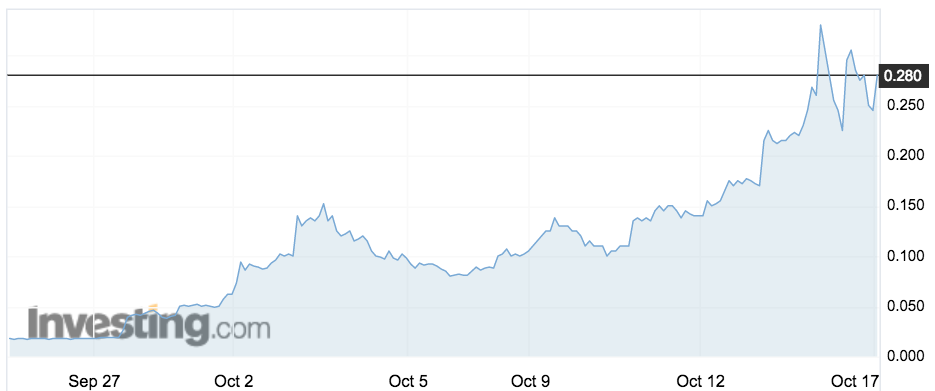Small cap phenomenon Biotron locks in $4.7m funding; shares still going crazy
Health & Biotech
Health & Biotech
HIV fighter Biotron — which took investors on a wild rollercoaster ride Tuesday — has locked in an underwriter for $4.7m worth of options it’s about to sell to raise money for the next two years.
Biotron put on the small cap spectacle of the year on Tuesday. The stock (ASX:BIT) soared 70 per cent to 44.5c before plummeting back to 24.5c to close down 6 per cent.
Some $50 million worth of shares changed hands.
On Wednesday $17 million of trades took place — pushing the shares back up 27 per cent to 32c.
The options announced today are worth 6c each — and are what is known in investment parlance as ‘in the money’, meaning they’re lower than the share price.
Options give the owner an ‘option’ to buy a share at a set price, with the idea being to buy when the share price is higher and then sell the stock for a profit.
Bitron is now locking in an underwriter as an insurance policy.
The stock is highly volatile. Biotron has protection for that funding just in case it falls back towards 2c, the level where it was sitting before announcing the HIV news that sent the stock into the stratosphere.

The Sydney-based small cap has experienced one of the year’s most extraordinary runs after two weeks ago announcing positive trial results for its HIV treatment.
On Monday, Biotron told investors it had received a $1 million R&D tax refund — though managing director Dr Michelle Miller reiterated that the current trial was already fully funded.
Biotron earlier confirmed to Stockhead it was on the hunt for a funding partner to move to the next stage of testing.
The underwriter for the 78.4m options is CPS Capital which, if the stock price remains elevated, will earn the easiest 5 per cent fee to be found in the market this year.
“The underwriting will, subject to the terms of the agreement, ensure that approximately $4.7m will be added to the company’s balance sheet, which will place the company in a sound financial position as it focuses on achieving a commercial outcome following the recent successful results from the phase 2 clinical trial of the company’s lead drug BIT225 for the treatment of HIV-1,” company secretary Peter Nightingale said.
With a quarterly cash burn between $500,000 and $700,000 a quarter, the option sale will lock in funding for the company for about two years.